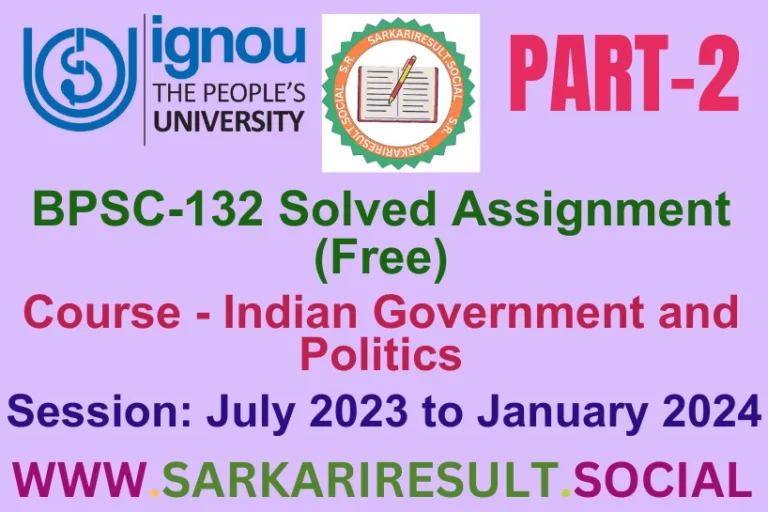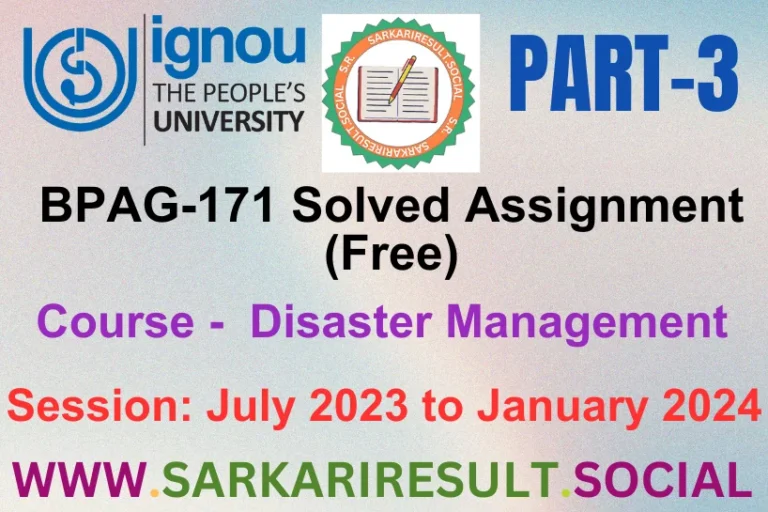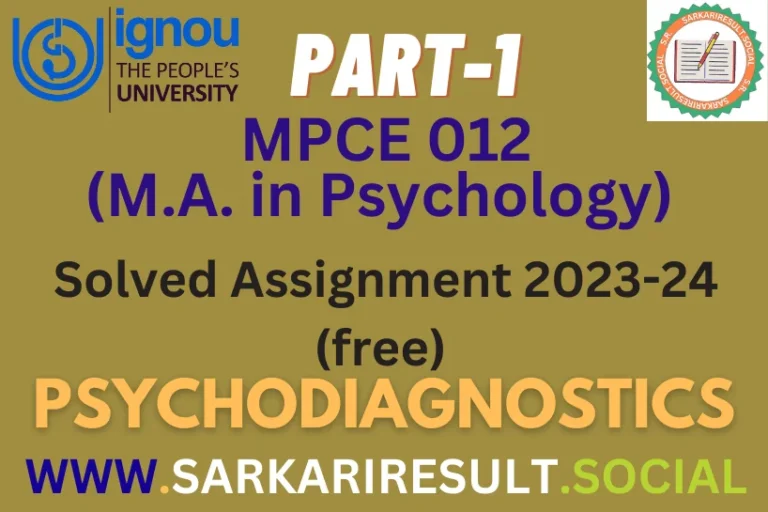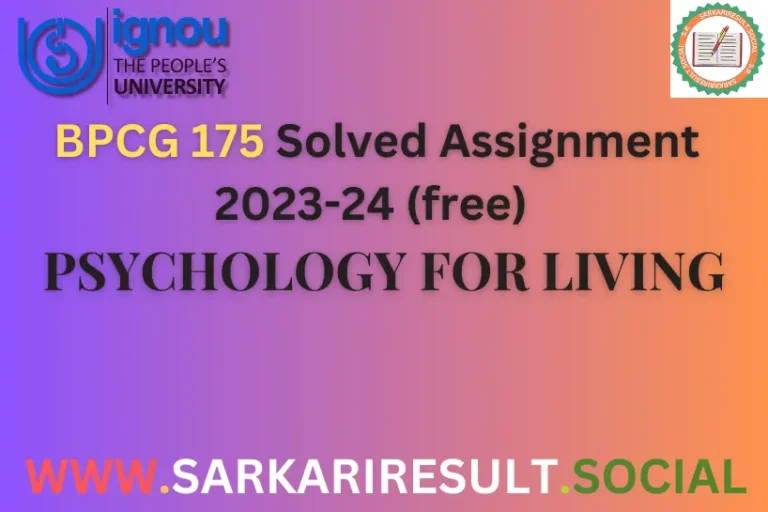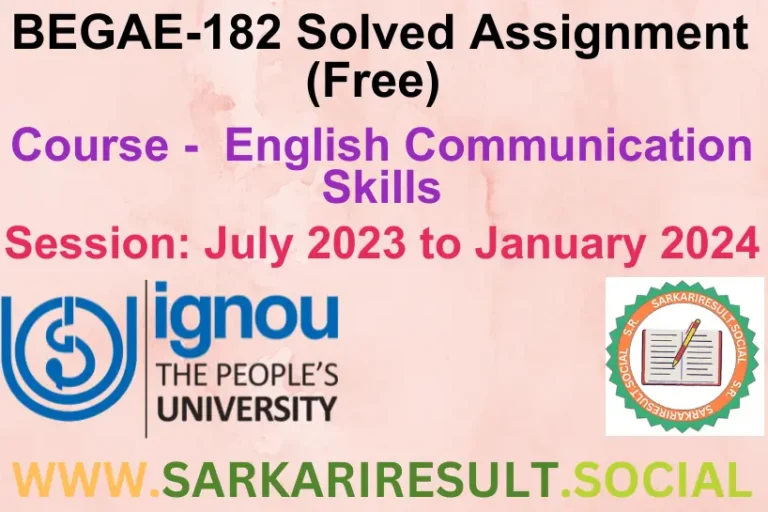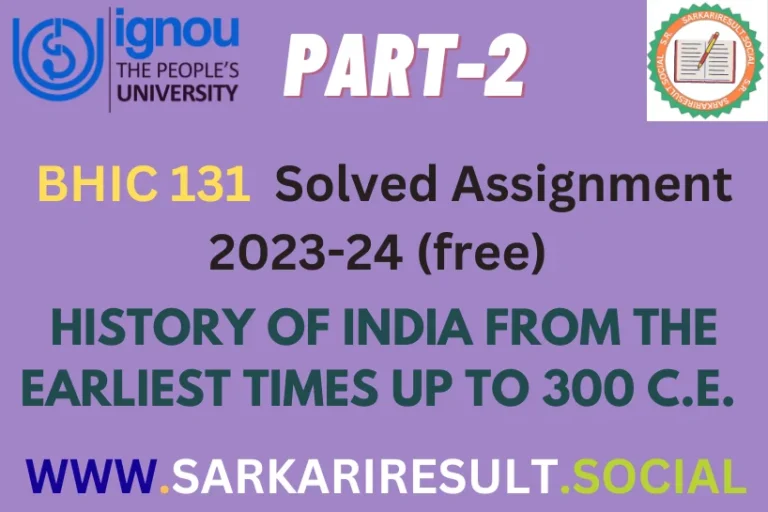BPCG 174 SOLVED IGNOU ASSIGNMENT FREE PART 3
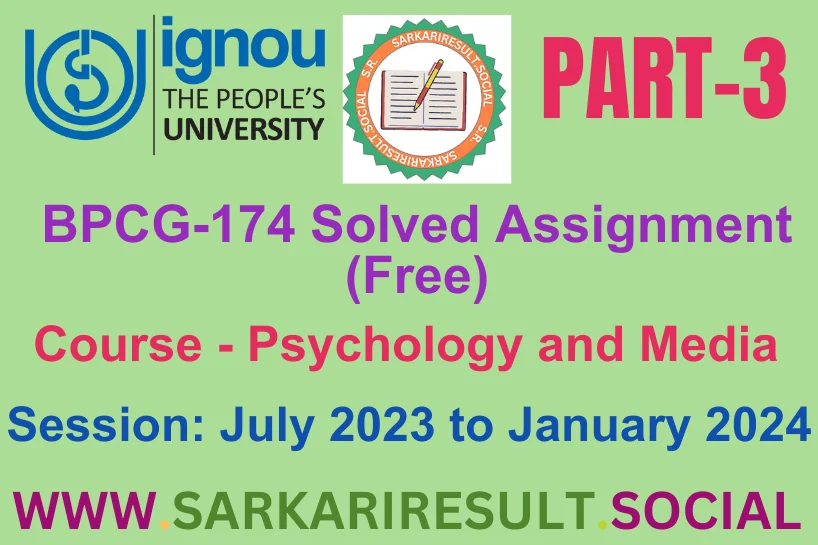
Welcome to the BPCG 174 SOLVED IGNOU ASSIGNMENT FREE PART 3 TMA. Assignment Three simplifies your approach with concise answers to five questions, each carrying 6 marks. In just 100 words per response, explore the realm of cybercrime, unravel the dynamics of media fandom, understand the Gatekeeping Hypothesis, delve into the ethics of media psychology research, and categorize the various types of media. Our succinct solutions empower you to navigate these diverse topics effortlessly, ensuring a seamless completion of your assignments while gaining valuable insights into the nuances of psychology and media. Our IGNOU Solved Assignments 2024 for this section serve as your creative guide.
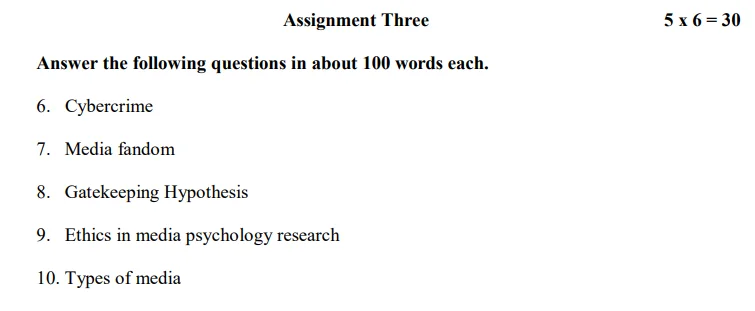
Answer the following questions in about 100 words each.
Q.6 Cybercrime
Ans. Cybercrime refers to criminal activities conducted through digital means, targeting computers, networks, and data. It encompasses a range of illicit actions such as hacking, identity theft, online fraud, and the spread of malware. Perpetrators exploit vulnerabilities in technology to compromise security and gain unauthorized access.
Cybercrime poses significant threats to individuals, businesses, and governments, leading to financial losses, privacy breaches, and disruptions to critical infrastructure. Combating cybercrime requires robust cybersecurity measures, international collaboration, and ongoing efforts to stay ahead of evolving digital threats.
Q.7 Media fandom
Ans. Media fandom involves a passionate and dedicated community of fans who deeply engage with and celebrate a particular piece of media, such as a TV show, movie, book, or video game. Fans express their enthusiasm through creative activities, fan fiction, fan art, conventions, and online discussions.
This shared devotion creates a sense of community, often transcending geographical boundaries. Media fandom fosters a unique and participatory relationship between fans and the content they love, influencing fan culture and shaping how media is consumed and interpreted.
Q.8 Gatekeeping Hypothesis
Ans. The Gatekeeping Hypothesis posits that media professionals, such as editors or journalists, act as gatekeepers who control the flow of information to the public. These gatekeepers make decisions about what news or content is disseminated, influencing the public’s perception of events.
The hypothesis highlights the power of media professionals in shaping narratives, framing issues, and selectively presenting information, thereby playing a crucial role in agenda-setting and determining the information that reaches the audience.
Q.9 Ethics in media psychology research
Ans. Ethics in media psychology research involves upholding participant rights through informed consent, ensuring privacy, and avoiding harm. Researchers must transparently address the purpose and risks, respect cultural diversity, and obtain Institutional Review Board approval.
Voluntary participation, honesty in reporting, and a commitment to inclusivity are paramount. Media psychologists bear a professional responsibility to consider societal implications and prioritize ethical conduct, safeguarding both the integrity of their research and the well-being of participants.
Q.10 Types of media
Ans. Media encompasses various types facilitating communication and information dissemination. Print media, including newspapers and magazines, relies on text and images. Broadcast media, comprising television and radio, utilizes audio-visual formats. Digital media encompasses online platforms, websites, and social media, leveraging technology for content delivery.
Outdoor media employs billboards and signage for public visibility. Additionally, cinema and theater constitute cinematic media for storytelling. These diverse forms collectively shape how information is presented, influencing public opinion and culture across print, visual, auditory, and digital platforms.
Also See This: BPCG 174 SOLVED IGNOU ASSIGNMENT FREE PART 1

